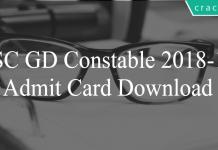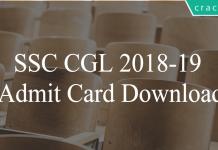Direct & Indirect Speech Questions For SSC GD PDF
DIRECT INDIRECT SPEECH QUESTIONS FOR SSC GD PDF
GET 20 SSC GD MOCK FOR JUST RS.117
Question 1: In the following question, a sentence has been given in Direct/Indirect speech. Out of the four alternatives suggested, select the one, which best expresses the same sentence in Indirect/Direct speech. Mr. Desai said to Harman, “Have you completed the assigned task?”
a) Mr. Desai asked Harman whether he is completed the assigned task.
b) Mr. Desai asked Harman whether he has been completed the assigned task.
c) Mr. Desai asked Harman whether he has completed the assigned task.
d) Mr. Desai asked Harman whether he had completed the assigned task.
Question 2: In the following question, a sentence has been given in Direct/Indirect speech. Out of the four alternatives suggested, select the one, which best expresses the same sentence in Indirect/Direct speech. The teacher said to the students, “Mt. Everest is the tallest mountain peak in the world.”
a) The teacher said to the students that Mt. Everest was the tallest mountain peak in the world.
b) The teacher said to the students that Mt. Everest is the tallest mountain peak in the world.
c) The teacher said to the students that Mt. Everest has been the tallest mountain peak in the world.
d) The teacher said to the students that Mt. Everest will be the tallest mountain peak in the world.
Question 3: In the following question, a sentence has been given in Direct/Indirect speech. Out of the four alternatives suggested, select the one, which best expresses the same sentence in Indirect/Direct speech. Abhishek said to Sibasish, “Are you coming for lunch?”
a) Abhishek asked Sibasish whether he is coming for lunch.
b) Abhishek asked Sibasish whether he will be coming for lunch.
c) Abhishek asked Sibasish whether he has been coming for lunch.
d) Abhishek asked Sibasish whether he was coming for lunch.
Question 4: In the following question, a sentence has been given in Direct/Indirect speech. Out of the four alternatives suggested, select the one, which best expresses the same sentence in Indirect/Direct speech. Bhatia said to his colleague that he was feeling sick.
a) Bhatia said to his colleague, ”He was feeling sick.”
b) Bhatia said to his colleague, ”I will be feeling sick.”
c) Bhatia said to his colleague, ”I am feeling sick.”
d) Bhatia said to his colleague, ”I was feeling sick.”
Question 5: In the following question, a sentence has been given in Direct/Indirect speech. Out of the four alternatives suggested, select the one, which best expresses the same sentence in Indirect/Direct speech. Mukesh said to Kalpesh, ”Where are you going?”
a) Mukesh asked Kalpesh where was he going.
b) Mukesh asked Kalpesh where is he going.
c) Mukesh asked Kalpesh where was he going to.
d) Mukesh asked Kalpesh where will he be going.
Question 6: In the following question, a sentence has been given in Direct/Indirect speech. Out of the four alternatives suggested, select the one, which best expresses the same sentence in Indirect/Direct speech. Mr. Malhotra said to Kunal, “Have you finished packing for the picnic?”.
a) Mr. Malhotra asked Kunal whether he is finished packing for the picnic.
b) Mr. Malhotra asked Kunal whether he has been finished packing for the picnic.
c) Mr. Malhotra asked Kunal whether he has finished packing for the picnic.
d) Mr. Malhotra asked Kunal whether he had finished packing for the picnic.
Question 7: In the following question, a sentence has been given in Direct/Indirect speech. Out of the four alternatives suggested, select the one, which best expresses the same sentence in Indirect/Direct speech. The teacher said to the students, “Honesty is the best policy.”
a) The teacher said to the students that honesty was the best policy.
b) The teacher said to the students that honesty is the best policy.
c) The teacher said to the students that honesty has been the best policy.
d) The teacher said to the students that honesty will be the best policy.
Question 8: In the following question, a sentence has been given in Direct/Indirect speech. Out of the four alternatives suggested, select the one, which best expresses the same sentence in Indirect/Direct speech. Mayur said to Anand, “Are you applying for this job??”
a) Mayur asked Anand whether he is applying for that job.
b) Mayur asked Anand whether he will be applying for that job.
c) Mayur asked Anand whether he has been applying for that job.
d) Mayur asked Anand whether he was applying for that job.
Question 9: In the following question, a sentence has been given in Direct/Indirect speech. Out of the four alternatives suggested, select the one, which best expresses the same sentence in Indirect/Direct speech. Amit said to his friend that he was doing his homework.
a) Amit said to his friend, ”He was doing his homework.”
b) Amit said to his friend, ”I will be doing my homework.”
c) Amit said to his friend, ”I am doing my homework.”
d) Amit said to his friend, ”I am going to do my homework.”
Question 10: In the following question, a sentence has been given in Direct/Indirect speech. Out of the four alternatives suggested, select the one, which best expresses the same sentence in Indirect/Direct speech. Jay said to Sumit, ”Have you written the speech?”
a) Jay asked Sumit whether he had written the speech.
b) Jay asked Sumit whether he has been written the speech.
c) Jay asked Sumit whether he was written the speech.
d) Jay asked Sumit whether he has written the speech.
Question 11: In the following question, a sentence has been given in Direct/Indirect speech. Out of the four alternatives suggested, select the one, which best expresses the same sentence in Indirect/Direct speech. Mr. Sharma said to Vijay, “Has your father returned from the office?”.
a) Mr. Sharma asked Vijay whether his father is returned from the office.
b) Mr. Sharma asked Vijay whether his father has been returned from the office.
c) Mr. Sharma asked Vijay whether his father has returned from the office.
d) Mr. Sharma asked Vijay whether his father had returned from the office.
Question 12: In the following question, a sentence has been given in Direct/Indirect speech. Out of the four alternatives suggested, select the one, which best expresses the same sentence in Indirect/Direct speech. The teacher said to the students, “There are eight planets in our solar system.”
a) The teacher said to the students that there have been eight planets in our solar system.
b) The teacher said to the students that there are eight planets in our solar system.
c) The teacher said to the students that there has been eight planets in our solar system.
d) The teacher said to the students that there were eight planets in our solar system.
Question 13: In the following question, a sentence has been given in Direct/Indirect speech. Out of the four alternatives suggested, select the one, which best expresses the same sentence in Indirect/Direct speech. Jignesh said to Patel, “Are you coming to the party tomorrow?”
a) Jignesh asked Patel whether he is coming to the party the next day.
b) Jignesh asked Patel whether he will be going to the party the next day.
c) Jignesh asked Patel whether he is going to the party the next day.
d) Jignesh asked Patel whether he was going to the party the next day.
Question 14: In the following question, a sentence has been given in Direct/Indirect speech. Out of the four alternatives suggested, select the one, which best expresses the same sentence in Indirect/Direct speech. Karan said to his mother that he was going to the field to play.
a) Karan said to his mother, ”He was going to the field to play.”
b) Karan said to his mother, ”I will be going to the field to play.”
c) Karan said to his mother, ”I am going to the field to play.”
d) Karan said to his mother, ”I am gone to the field to play.”
Question 15: In the following question, a sentence has been given in Direct/Indirect speech. Out of the four alternatives suggested, select the one, which best expresses the same sentence in Indirect/Direct speech. Prakash said to Animesh, ”Have you prepared for the test?”
a) Prakash asked Animesh whether he had prepared for the test.
b) Prakash asked Animesh whether he has been prepared for the test.
c) Prakash asked Animesh whether he was prepared for the test.
d) Prakash asked Animesh whether he has prepared for the test.
FREE SSC PRACTICE SET DAILY TEST
Question 16: In the following question, a sentence has been given in Direct/Indirect speech. Out of the four alternatives suggested, select the one, which best expresses the same sentence in Indirect/Direct speech. Rekha said to her son, “Have you eaten your dinner?”.
a) Rekha asked her son whether he has been eating.
b) Rekha asked her son whether he was eating his dinner.
c) Rekha asked her son whether he will eat his dinner.
d) Rekha asked her son whether he had eaten his dinner.
Question 17: In the following question, a sentence has been given in Direct/Indirect speech. Out of the four alternatives suggested, select the one, which best expresses the same sentence in Indirect/Direct speech. The teacher said to the students, “Moon is the natural satellite of the earth.”
a) The teacher said to the students that the Moon was the natural satellite of the earth.
b) The teacher said to the students that the Moon is the natural satellite of the earth.
c) The teacher said to the students that the Moon has been the natural satellite of the earth.
d) The teacher said to the students that the Moon became the natural satellite of the earth.
Question 18: In the following question, a sentence has been given in Direct/Indirect speech. Out of the four alternatives suggested, select the one, which best expresses the same sentence in Indirect/Direct speech. Ramesh said to Suresh, “Are you solving this question?”
a) Ramesh asked Suresh whether he was solving that question.
b) Ramesh asked Suresh whether he solved the question.
c) Ramesh asked Suresh whether he will solve the question.
d) Ramesh asked Suresh whether he was going to solve this question.
Question 19: In the following question, a sentence has been given in Direct/Indirect speech. Out of the four alternatives suggested, select the one, which best expresses the same sentence in Indirect/Direct speech. Julie said to Sonal that she was going to market to buy clothes.
a) Julie said to Sonal, “I am going to market to buy clothes.”
b) Julie said to Sonal,”I was going to market to buy clothes.”
c) Julie said to Sonal, “Clothes are going to be bought from the market by me.”
d) Julie said to Sonal, “She is going to market to buy clothes.”
Question 20: In the following question, a sentence has been given in Direct/Indirect speech. Out of the four alternatives suggested, select the one, which best expresses the same sentence in Indirect/Direct speech. The teacher said to Ankit, ” Have you done your homework?”
a) The teacher asked Ankit whether he had done his homework.
b) The teacher asked Ankit whether he has done his homework.
c) The teacher asked Ankit whether he was done his homework.
d) The teacher asked Ankit whether he did his homework.
Answers & Solutions:
1) Answer (D)
The given sentence is in direct speech. The sentence inside the inverted commas is in the present perfect tense. So, while changing the given sentence into indirect speech, the tense of the sentence inside the inverted commas will be changed into the past perfect tense, and inverted commas will be replaced with ‘whether’.
Hence, option D is the correct answer.
2) Answer (B)
The given sentence is in direct speech. The sentence inside the inverted commas is a universal truth. So, while changing the given sentence into indirect speech, the tense of the sentence inside the inverted commas will not change, and inverted commas will be replaced with ‘that’.
Hence, option B is the correct answer.
3) Answer (D)
The given sentence is in direct speech. To change it into indirect speech, the sentence inside the inverted commas shall be changed from the present continuous tense to the past continuous tense, and the inverted commas shall be replaced with ‘whether’.
Hence, option D is the correct answer.
4) Answer (C)
The given sentence is in indirect speech. To convert it into direct speech, the sentence after ‘that’ shall be changed from the past continuous tense to the present continuous tense and ‘that’ shall be replaced with inverted commas.
Hence, option C is the correct answer.
5) Answer (A)
The given sentence is in direct speech. The sentence inside the inverted commas is a question, and it is in the present continuous tense. To convert the given sentence into indirect speech, we have to change the sentence inside the inverted commas into a past continuous tense.
Hence, option A is the correct answer.
6) Answer (D)
The given sentence is in direct speech. The sentence inside the inverted commas is in the present perfect tense. So, while changing the given sentence into indirect speech, the tense of the sentence inside the inverted commas will be changed into the past perfect tense, and inverted commas will be replaced with ‘whether’.
Hence, option D is the correct answer.
7) Answer (B)
The given sentence is in direct speech. The sentence inside the inverted commas is a universal truth. So, while changing the given sentence into indirect speech, the tense of the sentence inside the inverted commas will not change, and inverted commas will be replaced with ‘that’.
Hence, option B is the correct answer.
8) Answer (D)
The given sentence is in direct speech. To change it into indirect speech, the sentence inside the inverted commas shall be changed from the present continuous tense to the past continuous tense, and the inverted commas shall be replaced with ‘whether’.
Hence, option D is the correct answer.
9) Answer (C)
The given sentence is in indirect speech. To convert it into direct speech, the sentence after ‘that’ shall be changed from the past continuous tense to the present continuous tense and ‘that’ shall be replaced with inverted commas.
Hence, option C is the correct answer.
10) Answer (A)
The given sentence is in direct speech. The sentence inside the inverted commas is a question, and it is in the present perfect tense. To convert the given sentence into indirect speech, we have to change the sentence inside the inverted commas into past perfect tense and add ‘whether’ in place of the inverted commas.
Hence, option A is the correct answer.
11) Answer (D)
The given sentence is in direct speech. The sentence inside the inverted commas is in the present perfect tense. So, while changing the given sentence into indirect speech, the tense of the sentence inside the inverted commas will be changed into the past perfect tense, and inverted commas will be replaced with ‘whether’.
Hence, option D is the correct answer.
12) Answer (B)
The given sentence is in direct speech. The sentence inside the inverted commas is a universal truth. So, while changing the given sentence into indirect speech, the tense of the sentence inside the inverted commas will not change, and inverted commas will be replaced with ‘that’.
Hence, option B is the correct answer.
13) Answer (D)
The given sentence is in direct speech. To change it into indirect speech, the sentence inside the inverted commas shall be changed from the present continuous tense to the past continuous tense, and the inverted commas shall be replaced with ‘whether’.
Hence, option D is the correct answer.
14) Answer (C)
The given sentence is in indirect speech. To convert it into direct speech, the sentence after ‘that’ shall be changed from the past continuous tense to the present continuous tense and ‘that’ shall be replaced with inverted commas.
Hence, option C is the correct answer.
15) Answer (A)
The given sentence is in direct speech. The sentence inside the inverted commas is a question, and it is in the present perfect tense. To convert the given sentence into indirect speech, we have to change the sentence inside the inverted commas into a past perfect tense and add ‘whether’ in place of the inverted commas.
Hence, option A is the correct answer.
16) Answer (D)
The given sentence is in direct speech. The sentence inside the inverted commas is in the present perfect tense. So, while changing the given sentence into indirect speech, the tense of the sentence inside the inverted commas will be changed into the past perfect tense, and inverted commas will be replaced with ‘whether’.
Hence, option D is the correct answer.
17) Answer (B)
The given sentence is in direct speech. The sentence inside the inverted commas is a universal truth. So, while changing the given sentence into indirect speech, the tense of the sentence inside the inverted commas will not change and inverted commas will be replaced with ‘that’.
Hence, option B is the correct answer.
18) Answer (A)
The given sentence is in direct speech. To change it into indirect speech, the sentence inside the inverted commas shall be changed from the present continuous tense to the past continuous tense, and the inverted commas shall be replaced with ‘whether’.
Hence, option A is the correct answer.
19) Answer (A)
The given sentence is in indirect speech. To convert it into direct speech, the sentence after ‘that’ shall be changed from the past continuous tense to the present continuous tense and ‘that’ shall be replaced with inverted commas.
Hence, option A is the correct answer.
20) Answer (A)
The given sentence is in direct speech. The sentence inside the inverted commas is a question, and it is in the present perfect tense. To convert the given sentence into indirect speech, we have to change the sentence inside the inverted commas into the past perfect tense and add ‘whether’ in place of the inverted commas.
Hence, option A is the correct answer.





